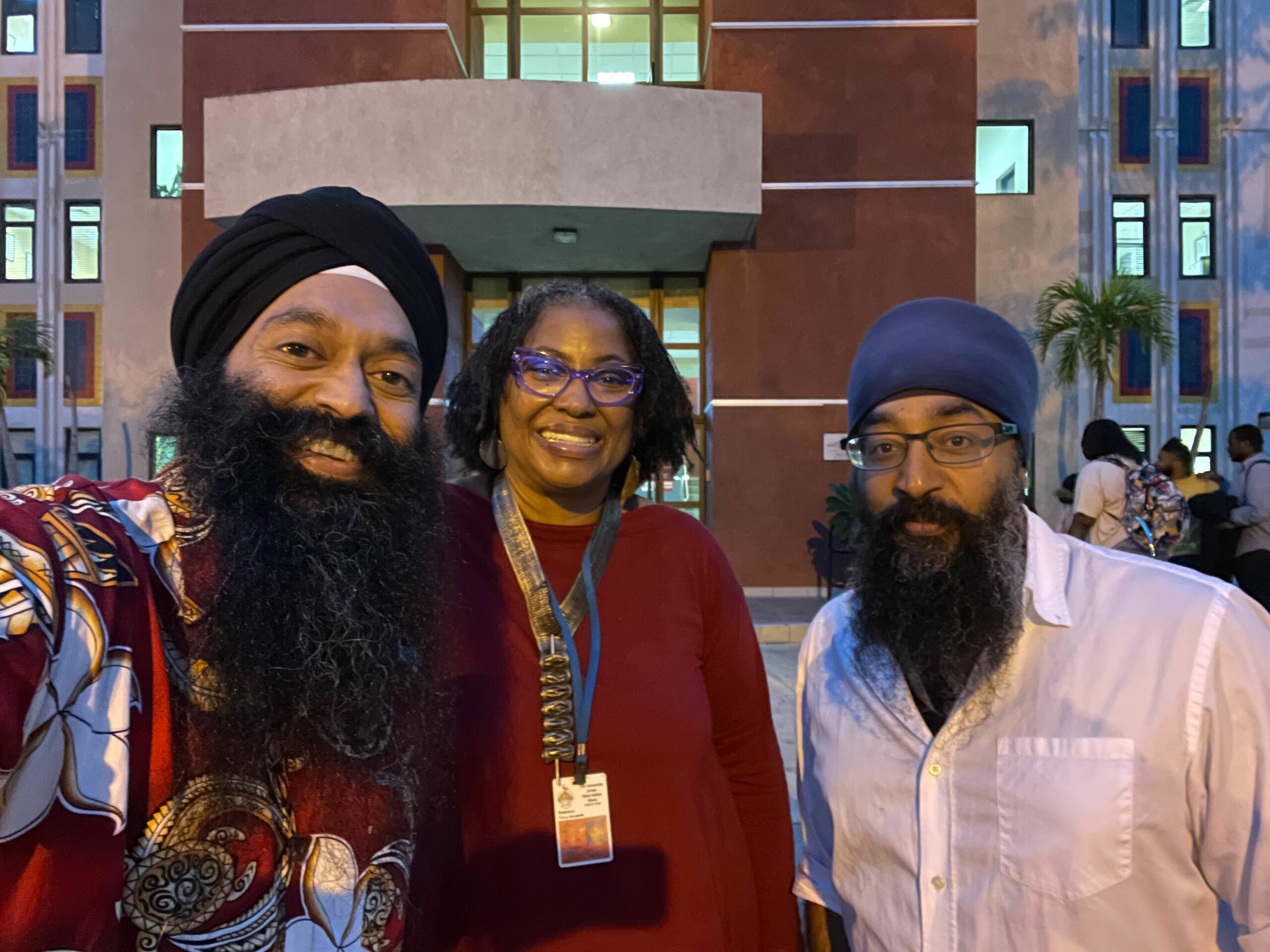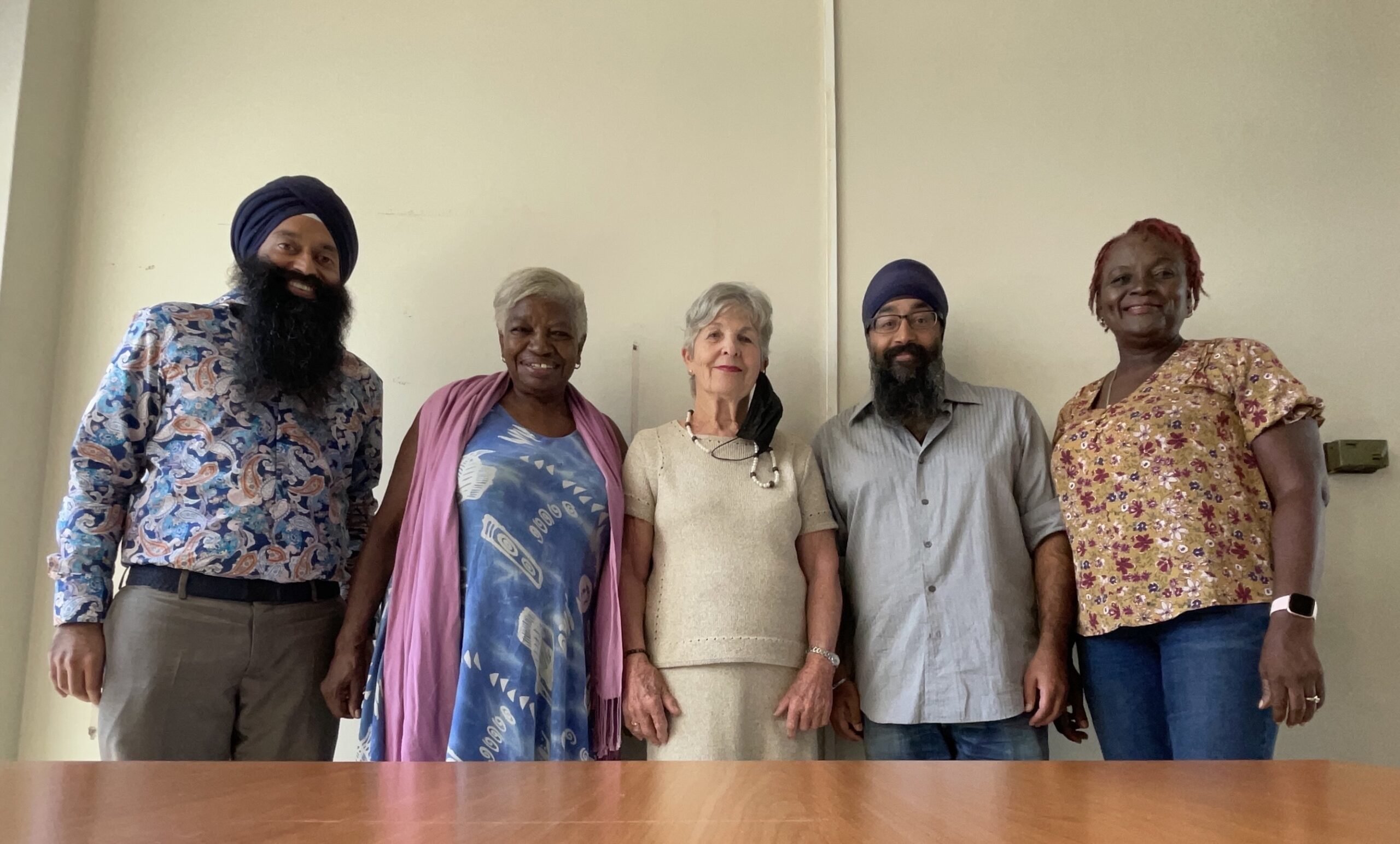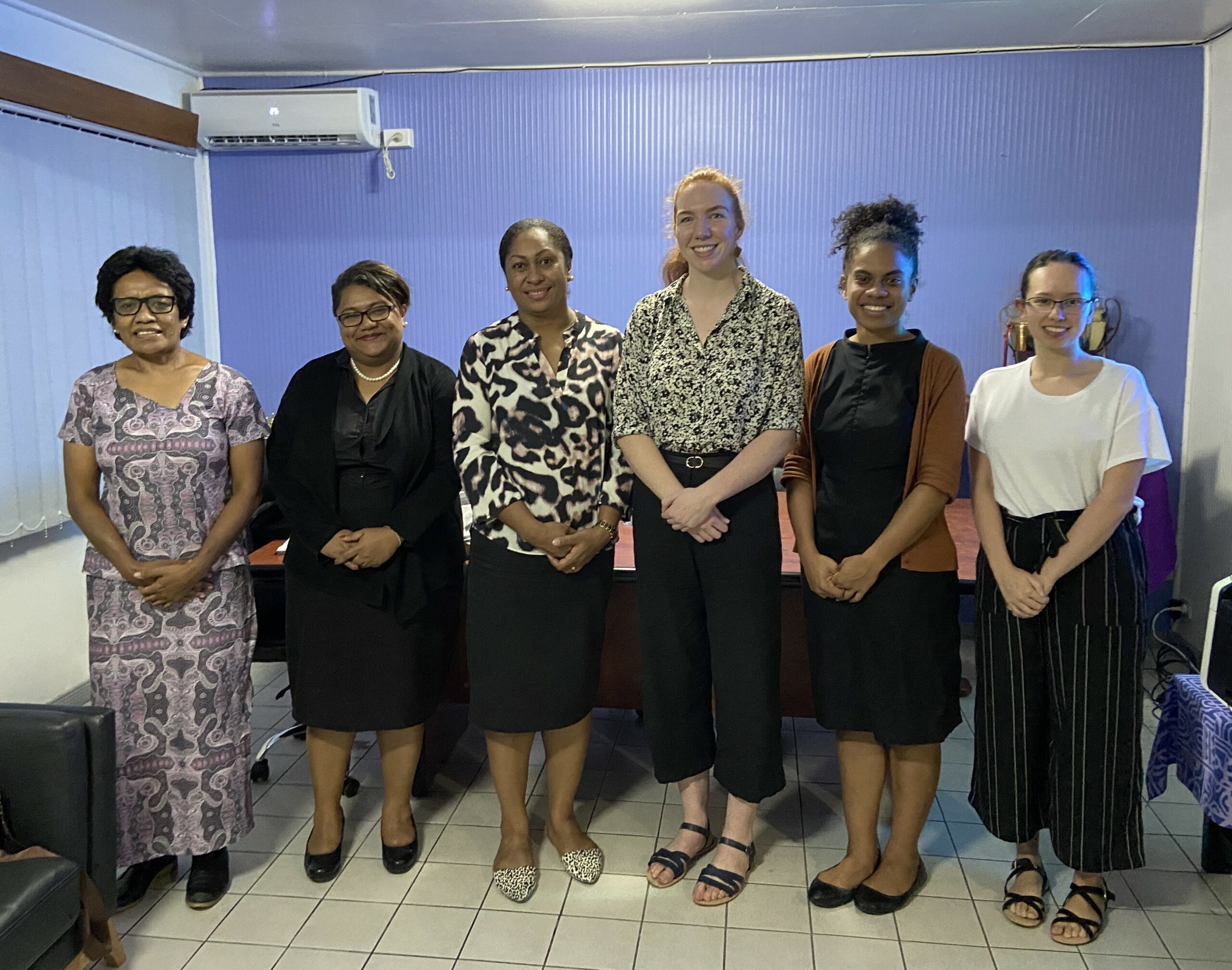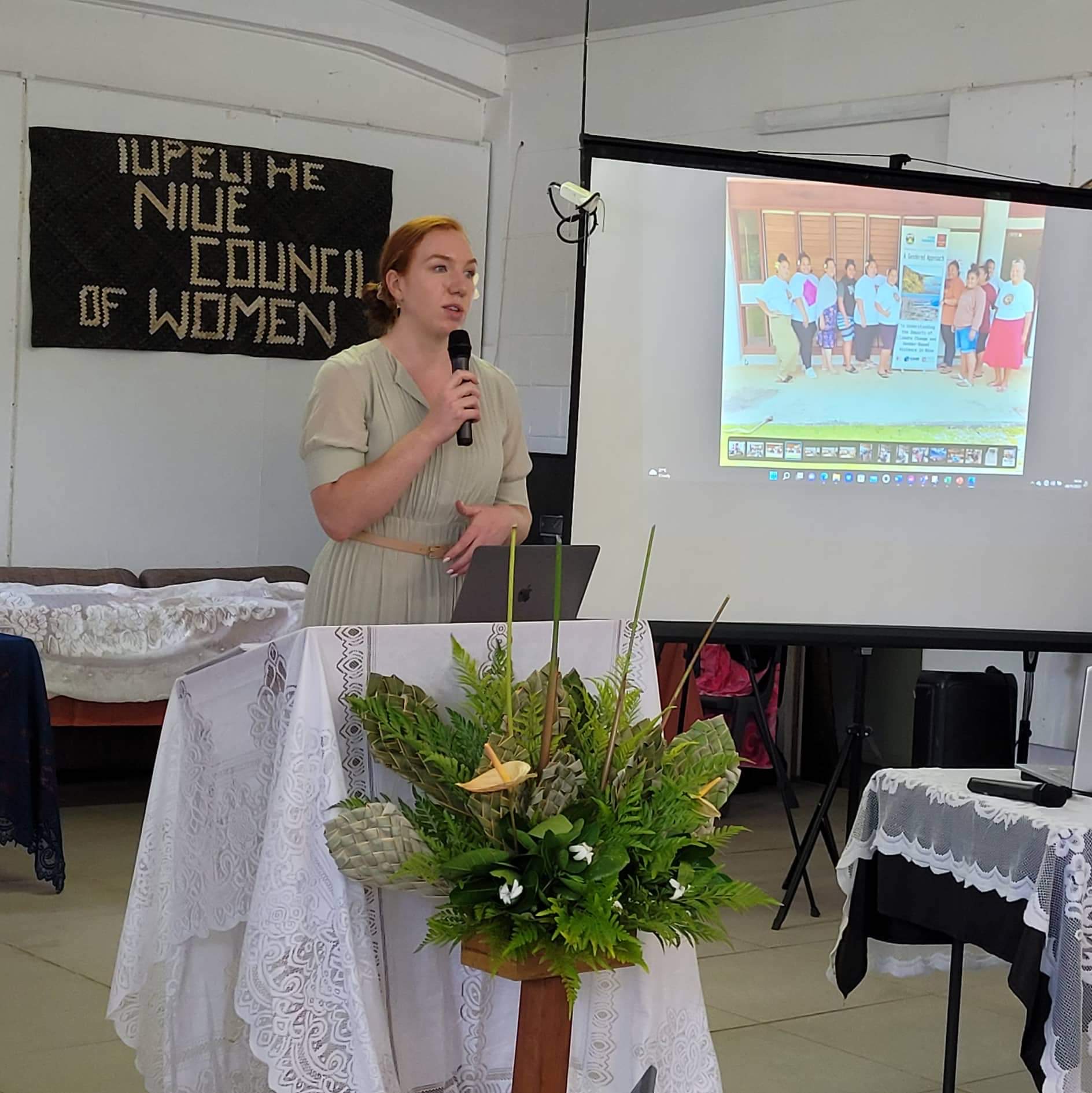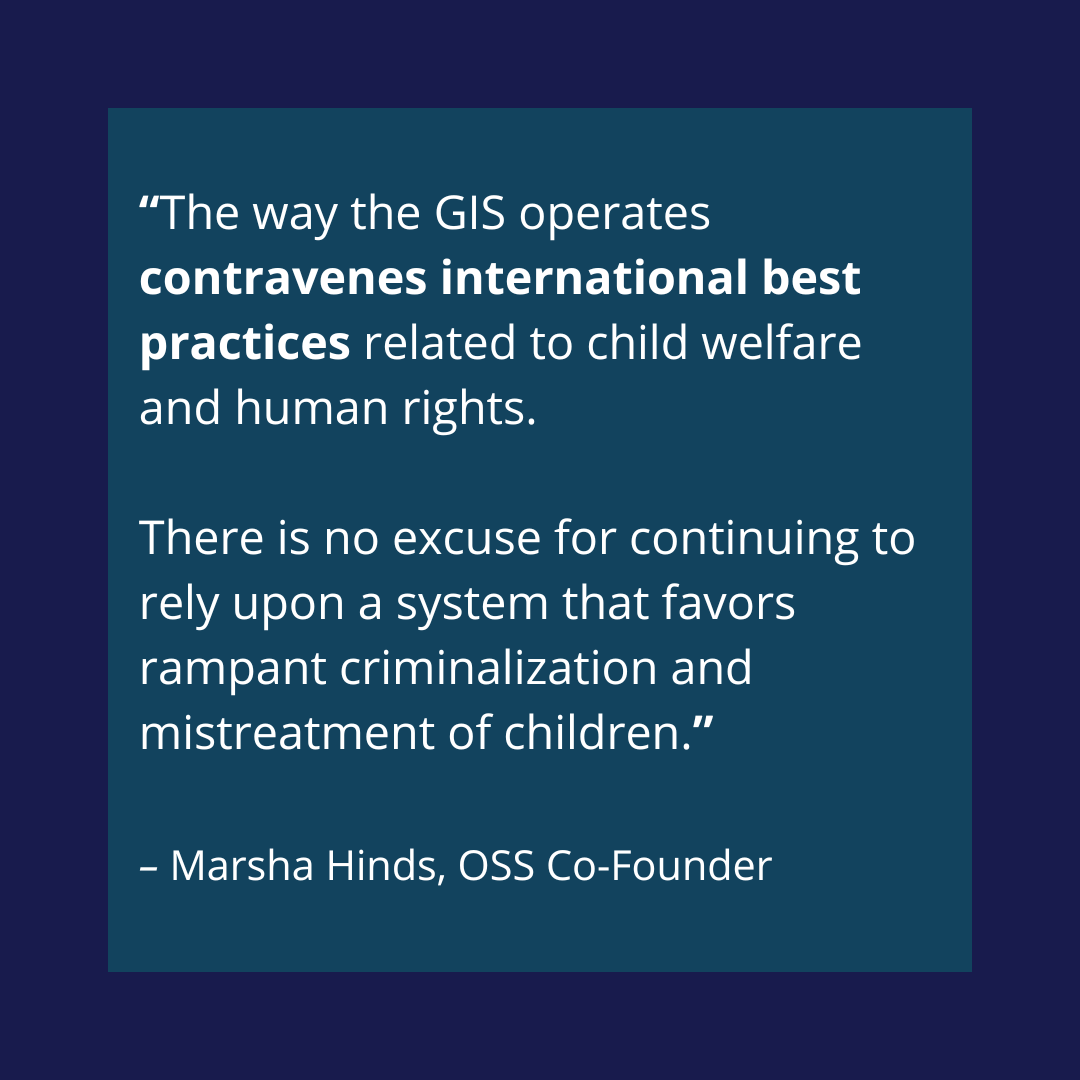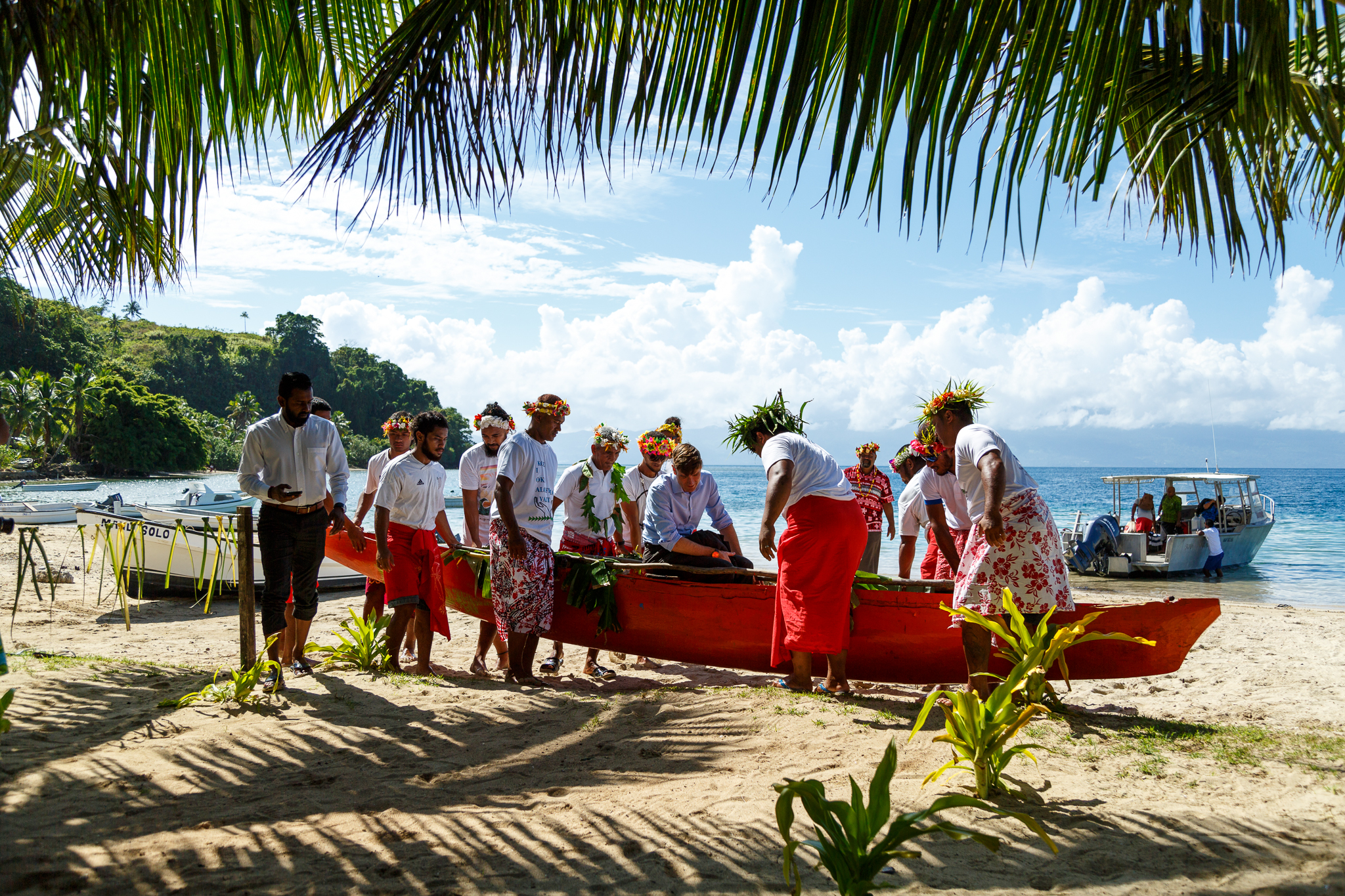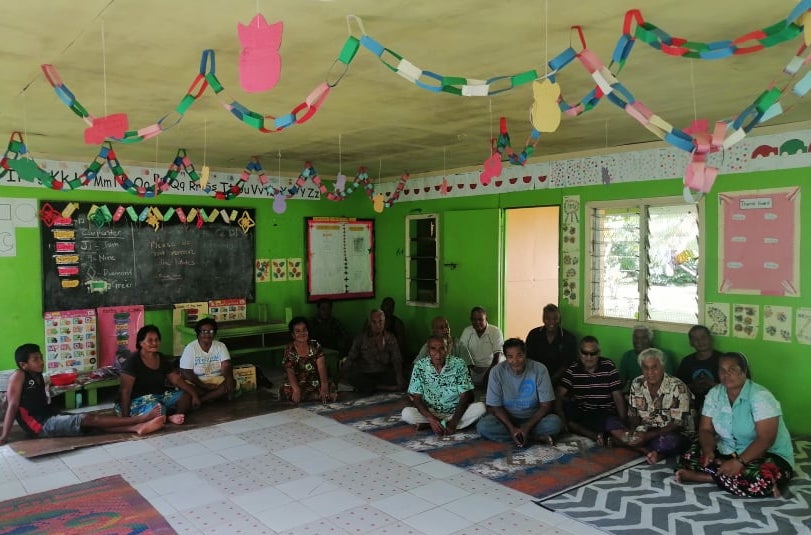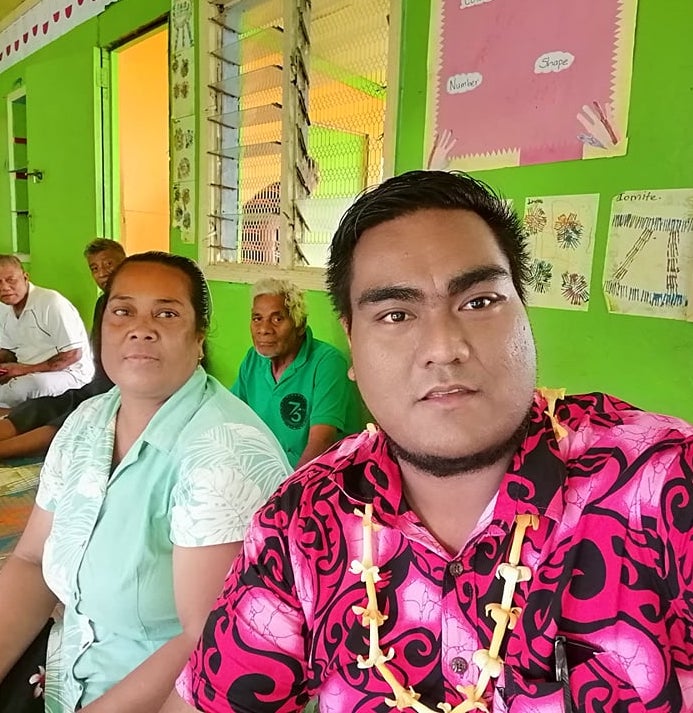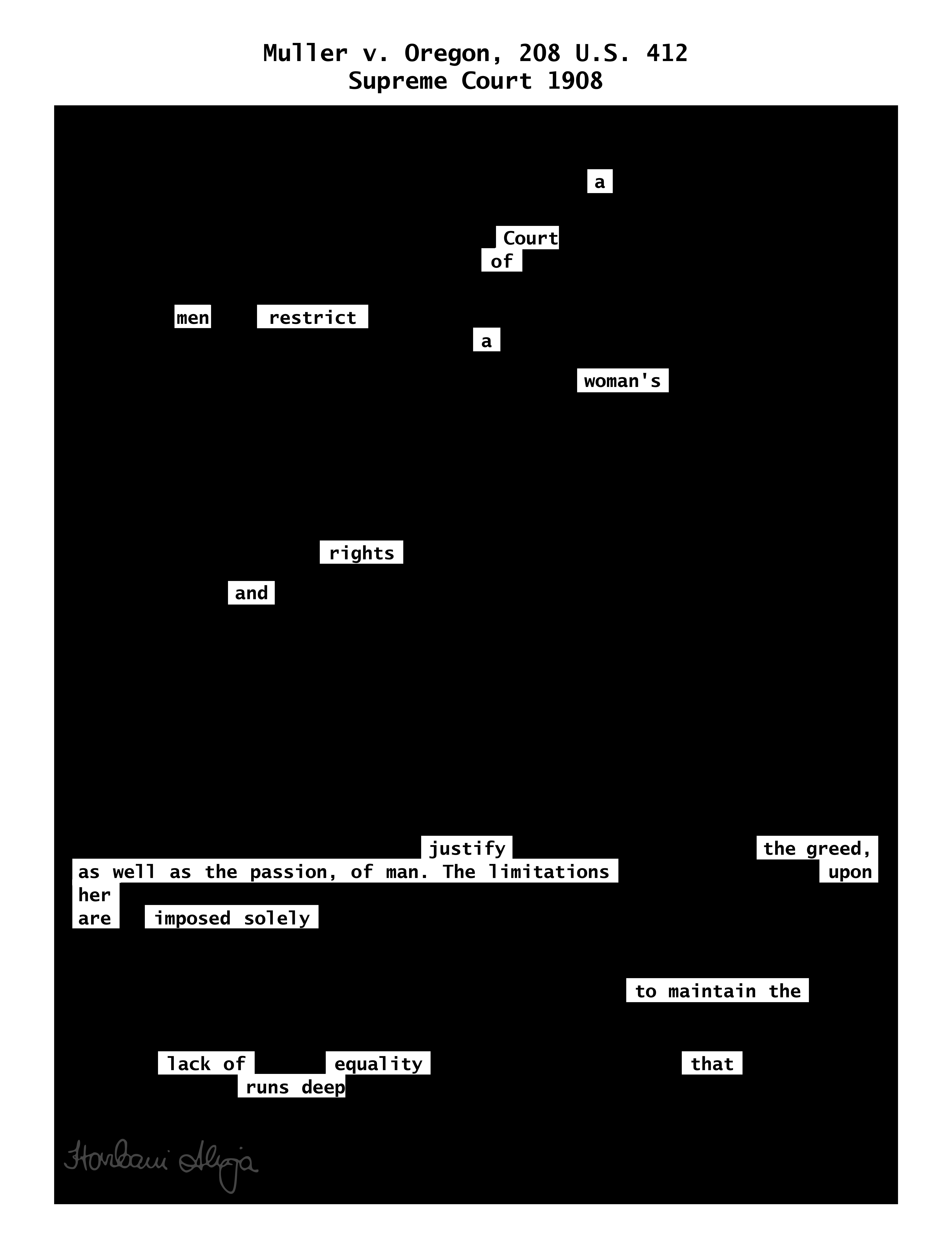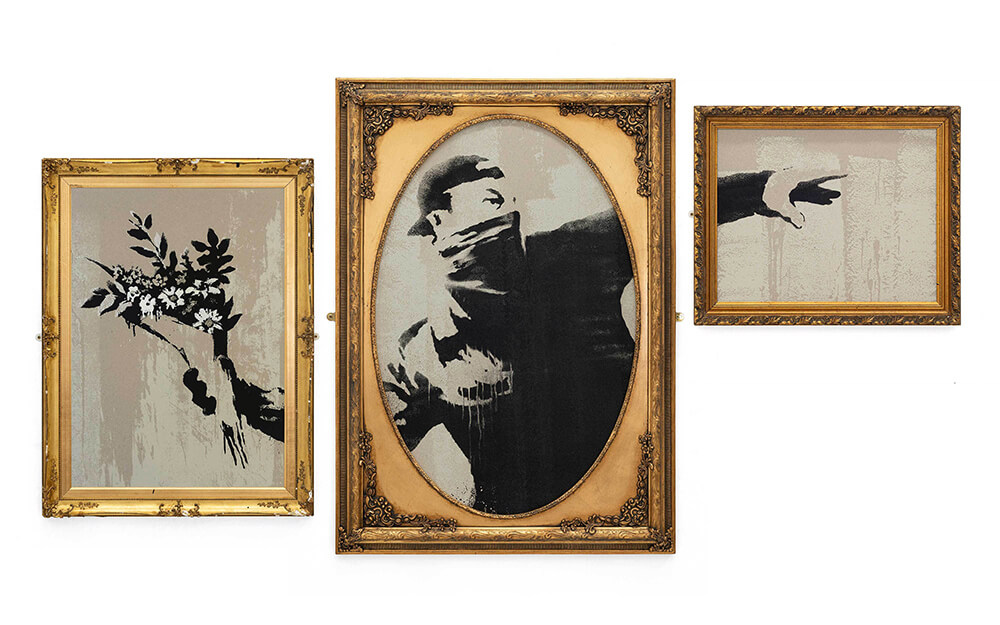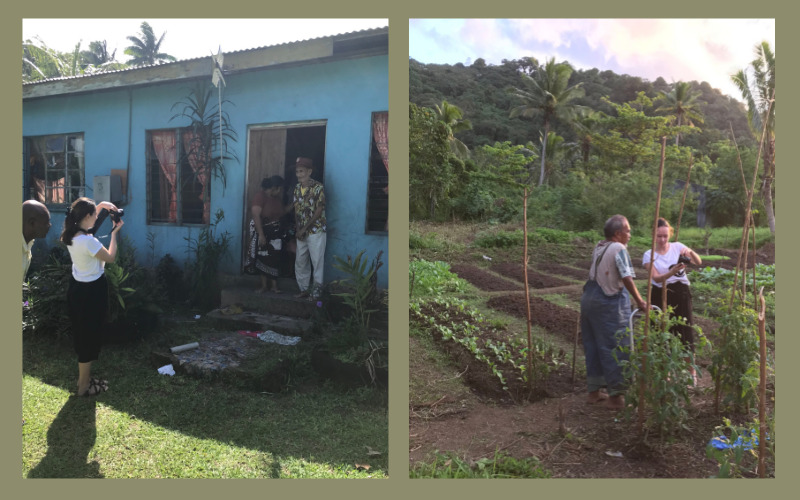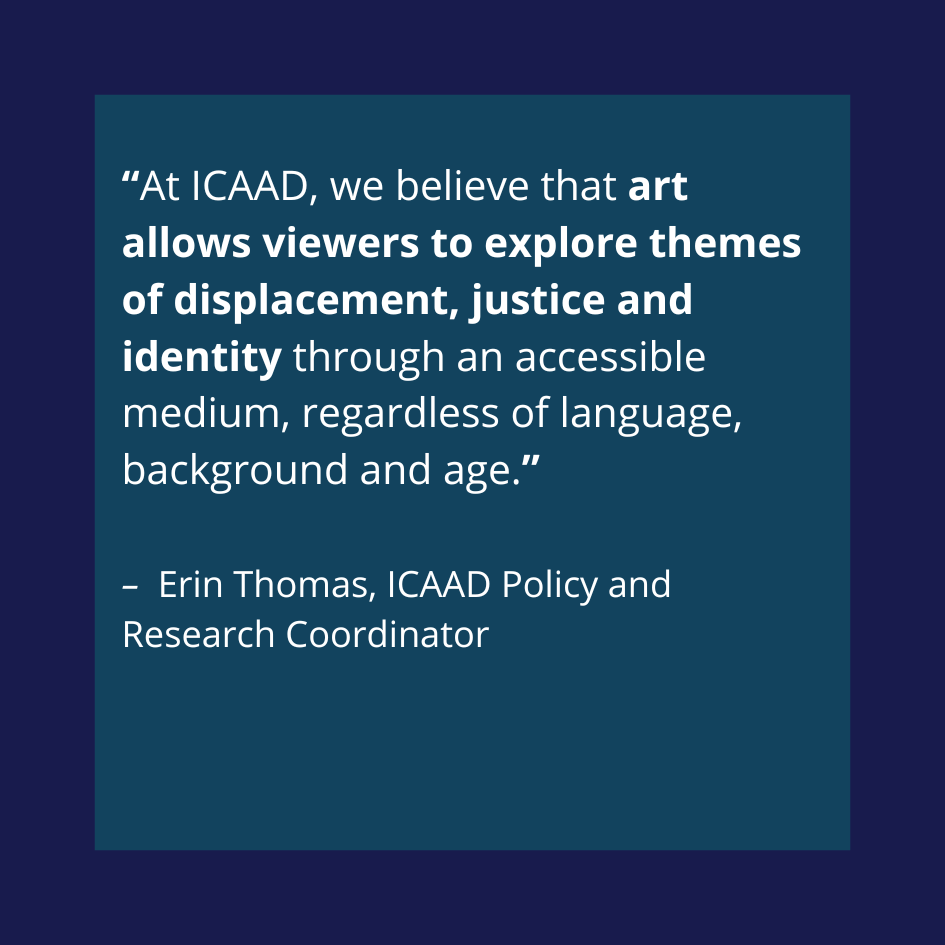This was a pivotal year at ICAAD as we celebrated ten years of human rights innovation. We continued to build momentum through new collaborations, groundbreaking research and advocacy that leverages technology, law and the arts. With a decade of experience and partnerships under our belt, we have entered an exciting period of growth as we expand each of our core areas of work.
Program Highlights
TrackGBV: Promoting Gender Equality
The impact of ICAAD’s TrackGBV Data Dashboard, launched in November 2021, continues to grow. With data from 2500+ cases from 9 Pacific Island countries, it is the only comprehensive resource to date that identifies bias and discrimination in judicial decision-making. We have engaged with over 68 organizations across 13 countries as part of this project, and have exceeded 3000 page views for the Dashboard since its launch.
TrackGBV Caribbean
Following requests from partners, we began scaling TrackGBV to the Caribbean this year. The ICAAD team traveled to Jamaica and Barbados, meeting with over 45 stakeholders across government, law enforcement, healthcare, and civil society. We identified gaps in laws, policies, enforcement and accountability for victim/ survivors of gender-based violence (GBV), and in Jamaica supported both government and civil society in conducting analysis of GBV cases.
Recognizing that systems change takes time, we will analyze data for 14 countries in the region, and will be making the data publicly accessible through a data dashboard for the Caribbean.
With our partner Jamaicans for Justice (JFJ), we co-designed a retrospective analysis project. JFJ, as one of the leading CSOs in the country, collected intake forms from several local CSOs, redacted sensitive information, and transferred it to ICAAD for analysis. We then created a methodology to identify where gaps in service delivery for GBV survivors were occurring by taking the qualitative intake data and converting it to quantitative data. The project is just the beginning of a pilot program that will seek to unlock CSO and government data.
Our commitment to promote gender equality includes additional initiatives to support our partners in the Pacific and Caribbean, including hosting trainings, publishing advocacy reports and developing innovative methodologies.
Continuing Legal Education in Fiji
ICAAD’s Erin Thomas traveled to Suva, Fiji in June to hold a Continuing Legal Education workshop with the Fiji Women Lawyers Association (FWLA), going into depth on the data from the 913 TrackGBV Fiji cases from 2000 to 2021. Over 40 lawyers participated and learned how to use the TrackGBV Dashboard, and how to identify bias as it’s happening in Court.
It is important to note that there are examples of Fijian judges who have challenged the very stereotypes and myths we have been reporting on for a decade. You can read more here.
Family-tree Mapping in Niue
Building on over four years of collaboration, ICAAD presented the results of our innovative family-tree mapping GBV study in Niue in November. This research marks the first time that a family-tree mapping methodology has been used to study GBV anywhere in the world. It has helped fuel conversations around the draft Family Relationships Bill, which will now include domestic violence provisions in line with international best practices. In addition to supporting policy change and awareness programming in Niue, this research piloted a methodology that can be used to uncover dynamics around GBV that are critical to policy change in other small, close-knit communities around the world.
Strategic Litigation: Operation Safe Space
ICAAD is supporting Barbadian NGO Operation Safe Space (OSS), which works to increase safe spaces for women and girls in the country. A key priority is reforming the policies and practices of the Government Industrial School, a state facility which operates as a detention center – criminalizing children in need of care and increasing the vulnerability of girls that interface with the institution. ICAAD is supporting OSS with legal research, litigation support, and advocacy from an international human rights law lens. We are also working with OSS to file an amicus curiae brief before the Caribbean Court of Justice to broaden the scope of protection orders in domestic violence cases.
RTLWD: Supporting Climate-Displaced Persons
For two years we have collaborated with a diverse team of activists (local and indigenous), climate scientists, lawyers, AI technologists, and researchers to draft a policy paper outlining a legal standard for the “right to life with dignity” in the context of climate-displaced persons. The policy paper is set to be published in 2023.

Right to Life with Dignity
We hosted numerous virtual discussion series with local and indigenous climate activists across several Pacific Island countries. This included interactive workshops on international law, climate-induced displacement and tools for engaging in climate justice advocacy. We also submitted a report to the UN Special Rapporteur on the promotion and protection of human rights, in the context of climate change on the RTLWD framework. This was in response to a request for NGO submissions on the promotion and protection of human rights in the context of mitigation, adaptation, and financial actions to address climate change.
As we continue to support the human rights of those on the climate frontline, our RTLWD project has led to broader collaborations on climate justice with local partners.
Advancing the Kioa Climate Emergency Declaration
ICAAD participated in the drafting of the landmark Kioa Climate Emergency Declaration, which features the climate demands most pressing for climate frontline communities in the Pacific: including greater action on mitigation and adaptation, and ensuring the just, dignified and safe movement of people in the context of climate change. The Declaration brings a sense of urgency to RTLWD and the need to expand legal protections for climate-affected people.
Supporting Banaban Rights
ICAAD has continued collaboration with the Banaban Local Government and Civil Society Working Group to address issues pertaining to displacement and human rights.
In the beginning of 2022, the Working Group hosted a series of community dialogue sessions to identify what legal questions remained around Banaban rights. Our pro bono partner, Clifford Chance, produced a legal memo answering the questions that emerged. The memo was the first-of-its-kind legal analysis for Banabans living on Rabi Island and clarified both technicalities of the legislations as well as pathways forward to redress the discriminatory treatment faced by Banabans on Rabi.
The Banaban Working Group is contributing a case study to the RTLWD project to ground our understanding of relocation and the implications for cultural, national and social identity. The forced displacement of the Banaban people because of phosphate mining in 1945 has resulted in multiple human rights violations. Their experience in terms of lack of legal protections, and ongoing citizenship struggles, is a localized policy challenge and offers lessons for impending climate-induced displacement in the region. Read more about the struggle for Banaban rights in this interview with Project Lead Rae Bainteiti.
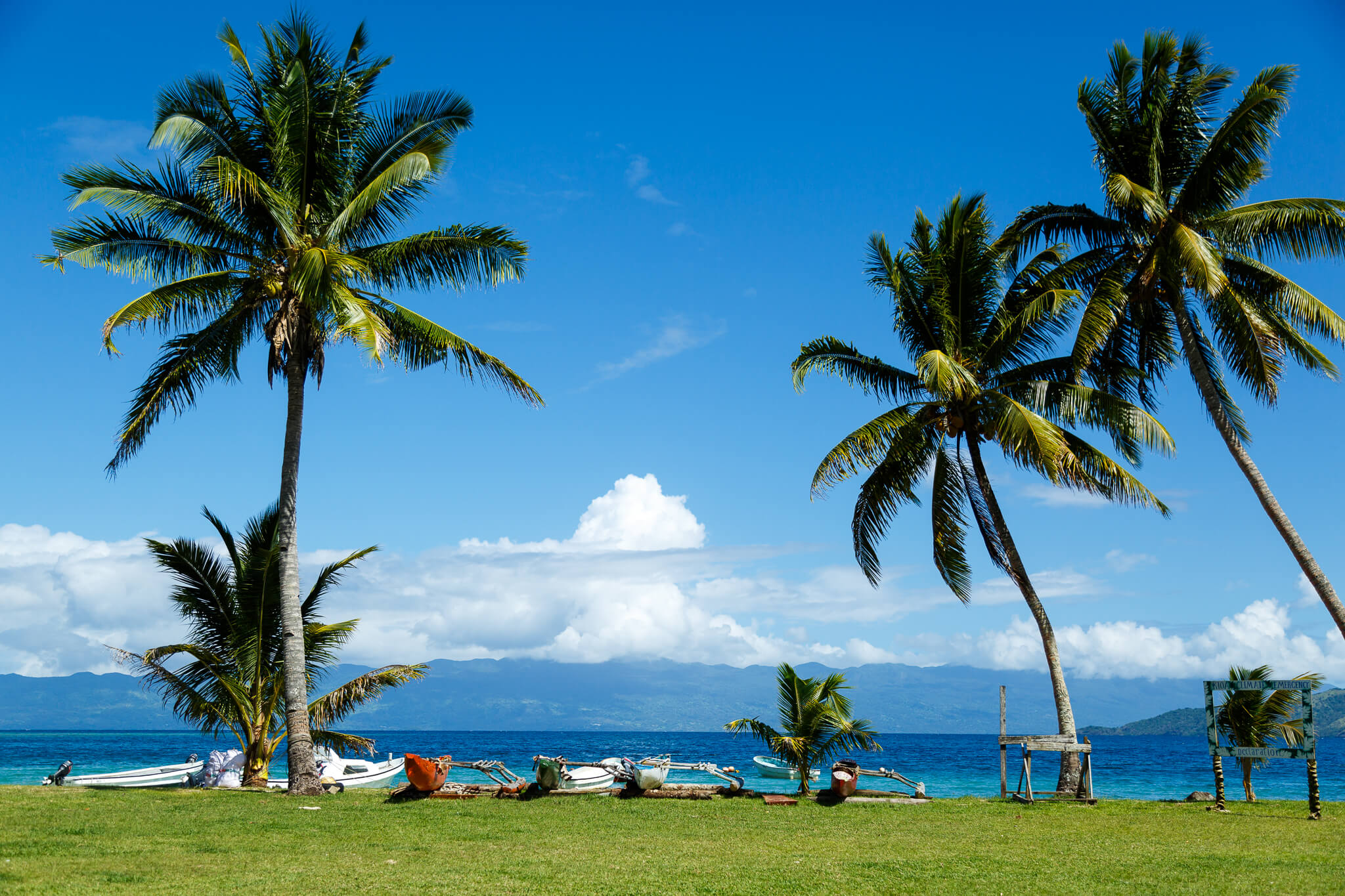
Supporting Climate Mobility in the Pacific
The ICAAD team joined CSO partners at the first-ever Pacific Climate Change Migration and Human Security Regional Dialogue, held in Nadi, Fiji. The dialogue brought together civil society and non-state actors for the first two days and then invited the Pacific Islands Forum member states for the last two days. The dialogue began with a review of the zero draft of the regional framework on climate mobility, which was produced over the last two years through consultations and research coordinated by the Kaldor Center based in New South Wales, Australia.
HRE: Training the Next Generation of Human Rights Advocates
This year, ICAAD ran a pilot program of our virtual How to Be An Effective Human Rights Advocate course in preparation for its launch in 2023. As part of our commitment to Human Rights Education (HRE), the course provides a participatory framework for understanding systemic discrimination, and training on a number of tools that can be used to disrupt unjust systems.
We believe it is our responsibility to train the next generation of advocates, and make sure materials are accessible to people coming from different disciplines, geographies and gender identities. Human rights education is not just a moral right – it is also a legal right under international law.
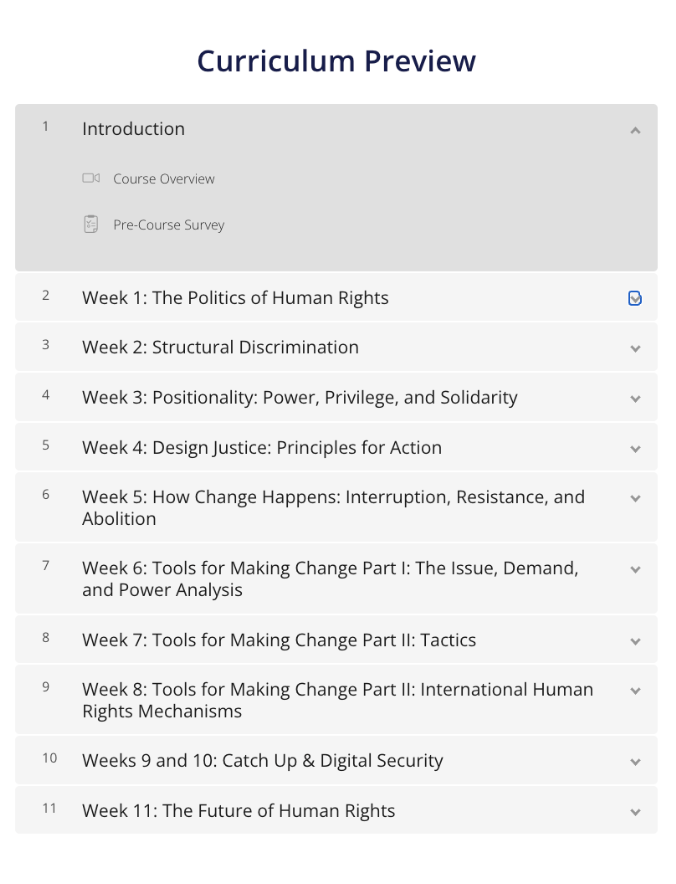
Piloting the Human Rights Course
Our virtual human rights course was piloted by 30 individuals, and included 10 weeks of material that were covered asynchronously.
We are also developing a database of video modules that students will be able to access when the course is launched.
ARTivism: Promoting Activism through the Arts
2022 was a big year for ICAAD’s Artivism program. Our inaugural Artivist, Harbani Ahuja, garnered increased exposure for her inspiring Dicta public arts project, and we expanded our Artivism program with five new artists.
Exposing the Gap Between Law and Justice
In May, Harbani’s collection on the Rights of Black People and Women’s Rights was featured at Clifford Chance’s New York office and on display in a virtual gallery through the ABA Journal, reaching millions of viewers.
In August, we unveiled Harbani’s additional collection on Immigrant Rights as part of the virtual exhibit. The series highlights critical and shameful features of U.S. immigration from the Chinese Exclusion Act to the “Muslim Ban”, and was featured at premier human rights and technology conference RightsCon.
Two more collections, on Indigenous Rights and the Right to Love, will be unveiled next year.
2022 Artivists-in-Residence
We brought on board five new Artivists-in-Residence this year:
- Namita Kulkarni (India),
- Dilpreet Bhullar (India),
- Katja Phutaraksa Neef (New Zealand),
- Queen (U.S.), and
- Vishavjit Singh (U.S.).
They come from a diversity of backgrounds but share a commitment to exploring the relationship between human rights advocacy and the arts. They are in the midst of producing their respective collections, to be shared publicly through exhibitions and events from 2023.
We are continuing to explore ways our programs and initiatives can integrate engagement with the arts.
Collective Storytelling and Artivism on Rabi Island
As part of our collaboration with the Banaban community, ICAAD Artivist Katja Phutaraksa Neef traveled to Rabi Island to meet with Banaban elders, women, and youth to record stories, photographs, songs, and dances related to what it means to be Banaban.
This lays the foundation for the launch of a new initiative centered on building and exhibiting the arts from Banaban artists and storytellers in Tamaki Makaurau Auckland and Rabi Island, Fiji, alongside the Auckland Banaban Christian Fellowship Support Hub, the Banaban Women’s Organization, and the Rabi Council of Leaders.
In February 2023, commissioned artwork from the Banaba Women’s Organization and Banaban high school students will be exhibited at Silo 6 in Auckland and online.
Additional Advocacy

ICAAD collaborated with disability rights organization Fusi Alofa Association Tuvalu and Tuvalu Climate Action Network on a joint submission to the UN Committee on the Rights of Persons with Disability. The submission pointed to a clear pattern of discrimination based on disability pertaining to immigration from the Pacific, and recommended key policy and legislative changes. Our recommendations were included in the UN’s concluding observations.

ICAAD joined over 80 organizations calling on the U.S. White House to create a federal commission to study the establishment of a National Human Rights Institution. This is in line with best practices of democracies globally, where domestic human rights bodies help to monitor and promote the implementation of international human rights obligations.
Partnerships
As a small but mighty team, our initiatives are made possible by continued support by partners and collaborators across law firms, technology companies, foundations, non-profits and CSOs, corporate partners and more.
Partners and Collaborators
FWRM, Jamaicans for Justice, Transwave, Eve for Life, Banaban Working Group, Banaban Women’s Organization, Auckland Banaban Christian Fellowship Support Hub, Operation Safe Space, Rabi Council of Leaders, It’s Y’all, Fusi Alofa Association Tuvalu, Tuvalu Climate Action Network, Equality Bahamas and more.
Financial Supporters
- UN Women
- Creative NZ
- UNESCO NZ
- Amnesty NZ
- Allstate Foundation
- FWRM
- Graymatters
- Clifford Chance Foundation
- Taiwan Foundation for Democracy
- Manatt, Phelps and Phillips, LLP
Events

ArtLaw Lunch Talk
ICAAD and the Center for Art Law co-hosted an event featuring Artivist Harbani Ahuja. Harbani read excerpts from her Dicta poetry series and discussed the gaps between law and justice, as well as the role that the arts can play in making the law more accessible.
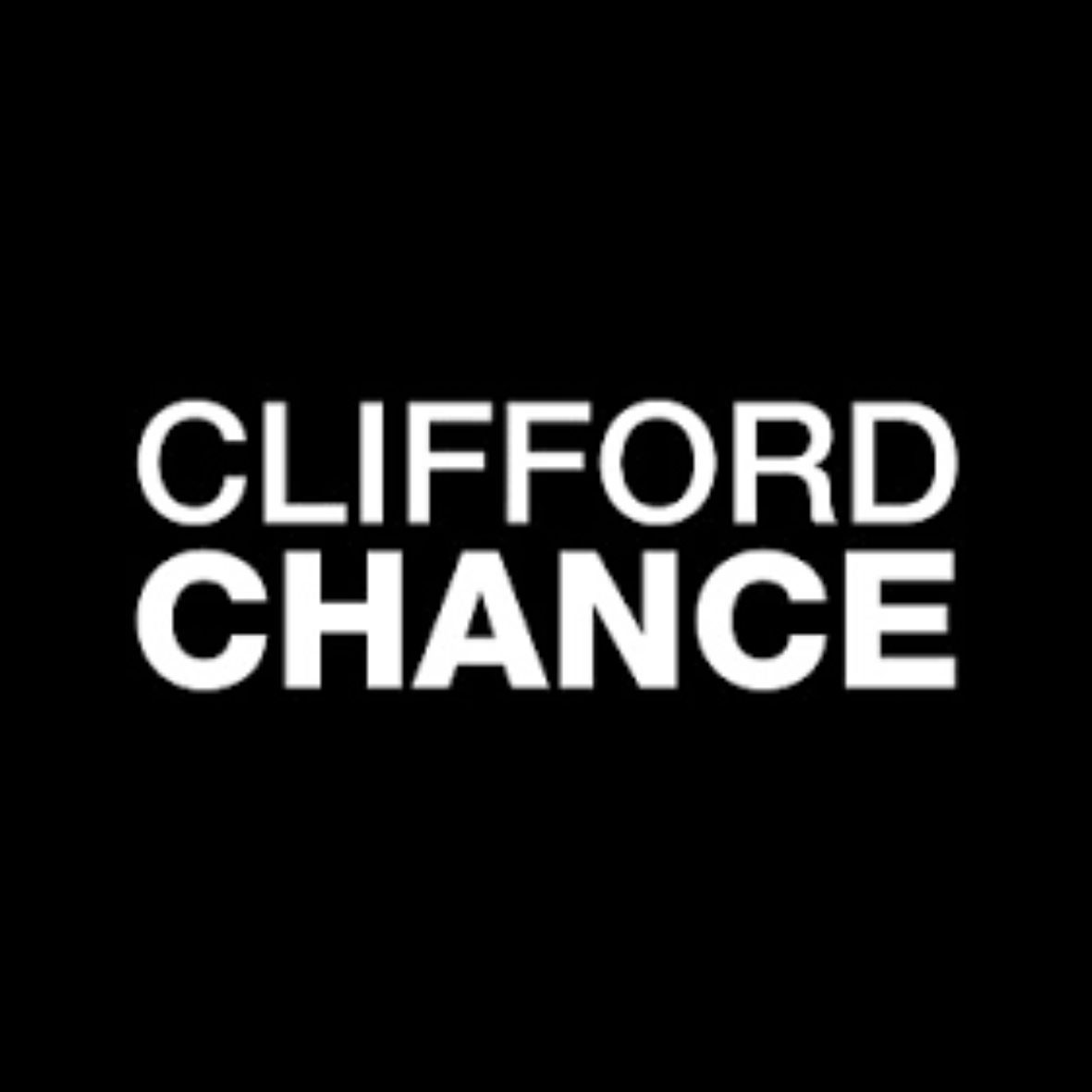
Event with Clifford Chance
In celebration of Black History Month, Clifford Chance hosted a virtual conversation between counsel Patrick Jackson in São Paulo and Harbani Ahuja. Harbani offered insights into her creative process and her experience working with ICAAD, and discussed her career as an attorney and her passion for social justice.

Event with Dr Simran Singh
ICAAD’s Sara Lobo facilitated a conversation with Dr Simran Jeet Singh, Executive Director for the Aspen Institute’s Religion & Society Program and author of The Light We Give: How Sikh Wisdom Can Transform Your Life. The webinar, co-hosted with Dasvandh Network, explored how Sikh teachings can help support advocacy efforts and the pursuit of justice.
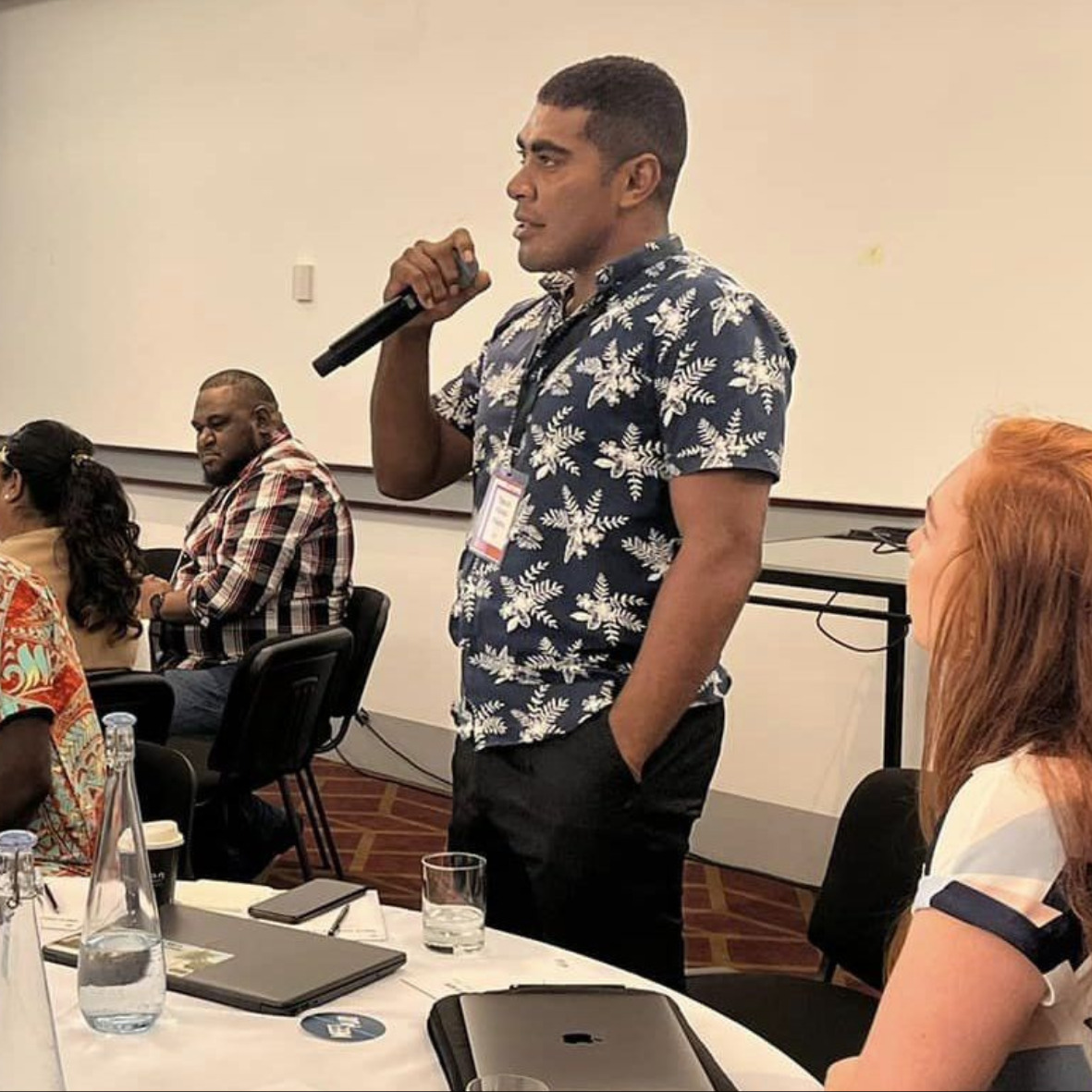
Tech Camp
ICAAD’s Erin Thomas led a workshop series on building multidisciplinary agility and leveraging pro bono partnerships for the Young Pacific Leaders TechCamp, attended by 50 youth Pacific representatives from 15 countries. This was part of our commitment to support intergenerational, multidisciplinary solidarity.
Press

The Spinoff New Zealand
ICAAD Artivist Katja Phutaraksa Neef was featured as one of the YWCA’s Y25, representing the best of young New Zealanders making an impact.

Radio New Zealand
ICAAD’s Erin Thomas was interviewed by Radio New Zealand about New Zealand’s pattern and practice of discrimination against Pasifika visa applicants with disabilities.

Pacific News Service
ICAAD’s joint submission to the UN Committee on the Rights of Disabilities was covered by the leading news wire for the Pacific.
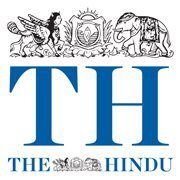
The Hindu
ICAAD Artivist Namita Kulkarni’s art exhibit on display at Bangalore Creative Circus has received press coverage from the Times of India, Bangalore Mirror, the Hindu and more.
Looking Ahead
This was a pivotal year for ICAAD, and we are poised for growth as we enter 2023. As we continue to expand our projects and grow our team, there is much to look forward to, including:
-
- Scaling TrackGBV to the Caribbean, while continuing trainings and advocacy with our partners in the Pacific.
- Publishing our legal standard on the Right to Life with Dignity in the context of climate-induced displacement.
- Launching our How to Be an Effective Human Rights Advocate course with an initial cohort of students.
- Beginning our arts initiative on Banaban rights, including the physical exhibit in Auckland.
- Unveiling Harbani Ahuja’s remaining Dicta poetry collections on Indigenous Rights and the Right to Love.
- Releasing art collections by our 2022 Artivists-in-Residence through public arts programs and virtual exhibits.
With the support of our partners around the world, we will continue to disrupt and dismantle structural discrimination by leveraging law, technology and the arts. Want to join us on this journey? Follow ICAAD on social media, subscribe to our newsletter, and donate today: your investment in building a more equitable future will last for generations.

